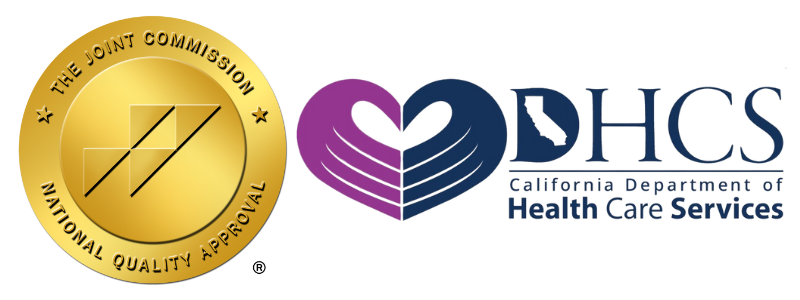Recognizing Mental Health Concerns
Understanding when to seek help for mental health concerns is crucial for maintaining our overall well-being. Recognizing the signs and symptoms early can lead to timely intervention and better outcomes.
Signs and Symptoms to Look Out For
Mental health issues can manifest in various ways. It’s important to be aware of the common signs and symptoms that may indicate a need for professional help. These can include:
- Persistent sadness or depression
- Excessive worry or anxiety
- Extreme mood swings
- Withdrawal from social activities
- Changes in eating or sleeping patterns
- Difficulty concentrating
- Feelings of hopelessness or worthlessness
- Unexplained physical ailments
- Substance abuse
| Symptom | Description |
|---|---|
| Persistent Sadness | Feeling down or depressed most of the time |
| Excessive Worry | Constantly feeling anxious or fearful |
| Mood Swings | Experiencing extreme highs and lows |
| Social Withdrawal | Avoiding friends, family, and social activities |
| Changes in Eating/Sleeping | Significant changes in appetite or sleep patterns |
| Difficulty Concentrating | Trouble focusing on tasks or making decisions |
| Feelings of Hopelessness | Believing that things will never get better |
| Unexplained Physical Ailments | Physical symptoms without a clear cause |
| Substance Abuse | Using drugs or alcohol to cope with emotions |
Impact of Untreated Mental Health Issues
Ignoring mental health concerns can have serious consequences. Untreated mental health issues can affect various aspects of our lives, including our physical health, relationships, and daily functioning. Some potential impacts include:
- Worsening of symptoms
- Development of additional mental health disorders
- Strained relationships with family and friends
- Decreased performance at work or school
- Increased risk of substance abuse
- Higher likelihood of self-harm or suicidal thoughts
| Impact | Description |
|---|---|
| Worsening Symptoms | Mental health issues can become more severe over time |
| Additional Disorders | Risk of developing other mental health conditions |
| Strained Relationships | Difficulty maintaining healthy relationships |
| Decreased Performance | Struggling to meet responsibilities at work or school |
| Substance Abuse | Turning to drugs or alcohol as a coping mechanism |
| Self-Harm/Suicidal Thoughts | Increased risk of harming oneself or having suicidal ideation |
Recognizing these signs and understanding the potential impacts of untreated mental health issues can help us take the necessary steps to seek help and support.
Importance of Seeking Help
Breaking the Stigma
Addressing mental health concerns is crucial, yet many individuals hesitate to seek help due to the stigma surrounding mental health issues. This stigma can lead to feelings of shame, guilt, and isolation, preventing people from reaching out for the support they need. By breaking the stigma, we can create a more accepting and understanding environment where individuals feel comfortable seeking help.
Stigma reduction involves educating ourselves and others about mental health, promoting open conversations, and challenging misconceptions. When we normalize seeking help for mental health concerns, we encourage more people to take the necessary steps toward recovery and well-being.
Benefits of Early Intervention
Early intervention in mental health can significantly improve outcomes for individuals experiencing mental health issues. Recognizing the signs and symptoms early and seeking help promptly can prevent the escalation of problems and reduce the impact on daily life.
Benefits of early intervention include:
- Improved Prognosis: Early treatment can lead to better long-term outcomes and a higher likelihood of recovery.
- Reduced Severity: Addressing issues early can prevent them from becoming more severe and harder to treat.
- Enhanced Quality of Life: Timely intervention can help individuals maintain their daily functioning and overall well-being.
- Lower Risk of Complications: Early treatment can reduce the risk of developing additional mental health issues or physical health problems.
| Benefit | Description |
|---|---|
| Improved Prognosis | Better long-term outcomes and higher likelihood of recovery |
| Reduced Severity | Prevention of issues becoming more severe |
| Enhanced Quality of Life | Maintenance of daily functioning and well-being |
| Lower Risk of Complications | Reduced risk of additional mental or physical health problems |
By understanding the importance of seeking help and the benefits of early intervention, we can take proactive steps to address mental health concerns and support those in need.
When to Seek Professional Help
Understanding when to seek help for mental health concerns is crucial for maintaining our well-being. Recognizing the signs that indicate the need for professional assistance can make a significant difference in our mental health journey.
Feeling Overwhelmed or Unable to Cope
When we feel overwhelmed or unable to cope with daily stressors, it may be time to seek professional help. This can manifest in various ways, such as:
- Constant feelings of anxiety or panic
- Difficulty concentrating or making decisions
- Persistent sadness or hopelessness
These feelings can interfere with our ability to function effectively in our personal and professional lives. Seeking help can provide us with the tools and support needed to manage these emotions.
Persistent Changes in Mood or Behavior
Significant and persistent changes in mood or behavior are also indicators that we may need professional assistance. These changes can include:
- Increased irritability or anger
- Withdrawal from social activities
- Changes in sleep patterns or appetite
Monitoring these changes can help us identify when our mental health is at risk. Professional help can offer strategies to address these issues and improve our overall well-being.
Interference with Daily Functioning
When mental health concerns begin to interfere with our daily functioning, it is essential to seek help. This can include:
- Difficulty performing at work or school
- Struggles with maintaining relationships
- Neglecting personal hygiene or self-care
| Indicator | Examples |
|---|---|
| Work/School Performance | Missed deadlines, decreased productivity |
| Relationships | Increased conflicts, isolation |
| Self-Care | Poor hygiene, neglecting responsibilities |
Recognizing these signs and seeking professional help can prevent further deterioration of our mental health and improve our quality of life.
Types of Mental Health Professionals
When we decide it’s time to seek help for mental health concerns, understanding the different types of mental health professionals can guide us in finding the right support. Each professional has unique qualifications and areas of expertise.
Psychiatrists
Psychiatrists are medical doctors who specialize in diagnosing and treating mental health disorders. They can prescribe medication and provide therapy. Their medical training allows them to understand the complex relationship between mental and physical health.
| Professional | Education | Services Provided |
|---|---|---|
| Psychiatrist | Medical Degree (MD or DO) | Diagnosis, Medication Management, Therapy |
Psychologists
Psychologists hold advanced degrees in psychology and are trained to assess and treat mental health issues through various forms of therapy. They do not prescribe medication but often work in conjunction with psychiatrists or other medical professionals.
| Professional | Education | Services Provided |
|---|---|---|
| Psychologist | Doctoral Degree (PhD or PsyD) | Therapy, Psychological Testing, Research |
Therapists
Therapists, including licensed clinical social workers (LCSWs) and licensed professional counselors (LPCs), provide counseling and support for a range of mental health issues. They use different therapeutic techniques to help individuals manage their concerns.
| Professional | Education | Services Provided |
|---|---|---|
| Therapist (LCSW, LPC) | Master’s Degree | Counseling, Therapy, Support Groups |
Understanding the roles of these mental health professionals helps us make informed decisions about the type of care we need. Whether we require medication, therapy, or a combination of both, there is a professional equipped to assist us on our journey to better mental health.
Steps to Take When Seeking Help
Researching Treatment Options
When we recognize the need for mental health support, the first step is to research the available treatment options. Understanding the different types of therapies and interventions can help us make informed decisions about our care. We should consider factors such as the type of mental health issue, the severity of symptoms, and personal preferences.
| Treatment Option | Description | Suitable For |
|---|---|---|
| Cognitive Behavioral Therapy (CBT) | Focuses on changing negative thought patterns | Anxiety, Depression |
| Medication | Prescribed by a psychiatrist to manage symptoms | Severe Depression, Bipolar Disorder |
| Group Therapy | Involves therapy sessions with others facing similar issues | Social Anxiety, Addiction |
| Individual Therapy | One-on-one sessions with a therapist | Personal Issues, Trauma |
Making the First Appointment
Once we have identified potential treatment options, the next step is to make the first appointment. This can be a daunting task, but it is a crucial step towards getting the help we need. Here are some steps to guide us through the process:
- Contact the Provider: Reach out to the mental health professional or facility to inquire about their services and availability.
- Prepare Information: Be ready to provide basic information about our mental health concerns, medical history, and any current medications.
- Ask Questions: Clarify any doubts about the treatment process, costs, and what to expect during the first session.
- Schedule the Appointment: Choose a convenient date and time for the appointment.
Building a Support System
Building a support system is essential for our mental health journey. Having a network of supportive individuals can provide emotional assistance, encouragement, and practical help. Here are some ways to build a strong support system:
- Family and Friends: Share our experiences and feelings with trusted family members and friends who can offer support.
- Support Groups: Join local or online support groups where we can connect with others facing similar challenges.
- Professional Support: Engage with mental health professionals who can provide guidance and therapy.
- Community Resources: Utilize community resources such as mental health centers, hotlines, and helplines for additional support.
By taking these steps, we can navigate the process of seeking help for mental health concerns more effectively and ensure we receive the care and support we need.
Resources for Mental Health Support
When it comes to addressing mental health concerns, having access to the right resources is crucial. Here are some key resources that can provide support and guidance.
Hotlines and Helplines
Hotlines and helplines offer immediate assistance for individuals experiencing mental health crises. These services are typically available 24/7 and provide confidential support from trained professionals. They can offer guidance, emotional support, and information on local resources.
| Hotline/Helpline | Service Provided | Availability |
|---|---|---|
| National Suicide Prevention Lifeline | Crisis intervention and support | 24/7 |
| Crisis Text Line | Text-based support for mental health crises | 24/7 |
| SAMHSA National Helpline | Substance abuse and mental health services | 24/7 |
Online Counseling Services
Online counseling services provide a convenient and accessible way to receive mental health support. These platforms connect individuals with licensed therapists through video calls, phone calls, or messaging. Online counseling can be particularly beneficial for those who may have difficulty accessing in-person services.
| Service Type | Description | Accessibility |
|---|---|---|
| Video Counseling | Face-to-face sessions via video call | High |
| Phone Counseling | Therapy sessions over the phone | High |
| Text-Based Counseling | Messaging with a licensed therapist | High |
Community Mental Health Centers
Community mental health centers offer a range of services to support individuals with mental health concerns. These centers provide access to mental health professionals, including psychiatrists, psychologists, and therapists. They often offer sliding scale fees based on income, making mental health care more affordable.
| Service Offered | Description | Cost |
|---|---|---|
| Individual Therapy | One-on-one sessions with a therapist | Sliding scale |
| Group Therapy | Support groups led by a mental health professional | Sliding scale |
| Psychiatric Services | Medication management and psychiatric evaluations | Sliding scale |
By utilizing these resources, we can ensure that we receive the support needed to address mental health concerns effectively. Whether through hotlines, online counseling, or community mental health centers, help is available to guide us on the path to mental wellness.








